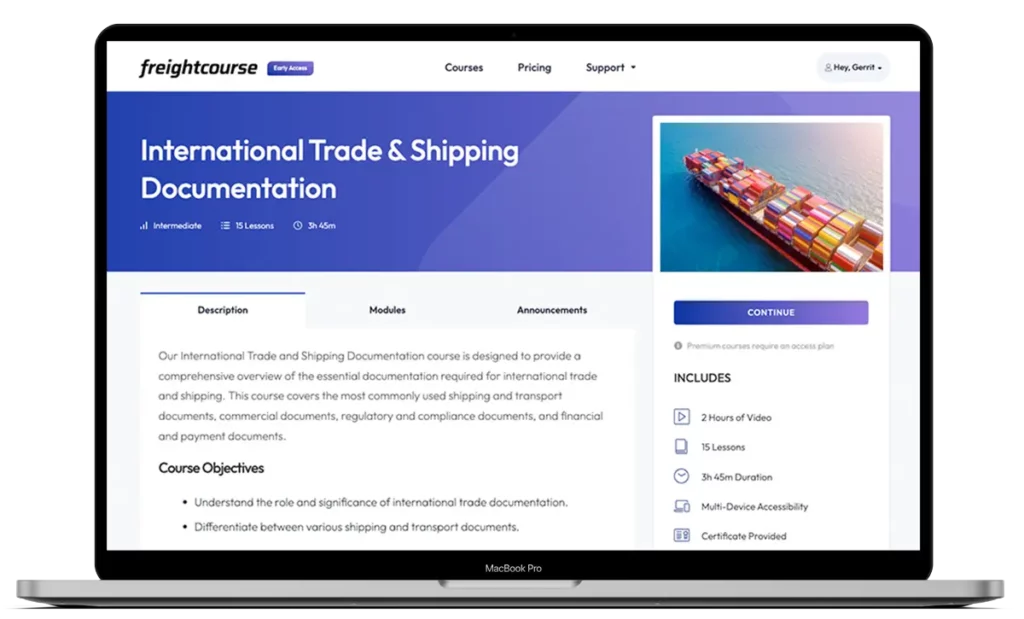Streamlined processes and efficiency are crucial elements in the land freight industry, whether you are a shipper, consignee, or trucker. Delays are one of the most common problems truckers can experience on the road.
Sometimes they can be prevented, but a few delays caused by unforeseen circumstances are unavoidable. Trucking layovers are common occurrences in the industry. They can be costly not only for the truckers but also for other involved parties since they will need to pay a per-day layover fee to the trucking company.
Moreover, owner-operators can miss out on revenue for each day they are delayed, while fleet owners may also face difficulties managing their business with delayed deliveries.
This article will detail all you need to know about layovers, layover fees, layover pay, causes for a layover, and a comprehensive case study to help you better understand the term, as well as the process.
What Does Layover Mean In Trucking?
A layover in trucking occurs when truck drivers are delayed and are unable to continue operating their trucks. Layovers can be caused by a variety of reasons that include regulations, weather conditions, technical issues, or delays by the shipper or consignee.
A delay is typically classified as a layover when a truck driver is delayed overnight or over multiple days, which prevents the them from loading or offloading their cargo as scheduled.
While layovers commonly occur when there are issues with the unloading (usually due to resource or space issues from the consignee), they can also happen due to regulatory reasons.

For example, the Federal Motor Carrier Safety Administration (FMCSA) in the United States stipulates in the Hours of Service Regulations that truck drivers carrying freight can only drive for a maximum of 11 hours after 10 consecutive hours off duty.
They may also not operate a truck beyond the 14th consecutive hour after coming on duty, following 10 consecutive hours off duty. These and similar regulations in other countries may cause a layover, as the truck driver’s schedule and overall transit days are extended.
Layovers are typically compensated through a layover pay (to the trucker) and/or a layover fee (from the shipper or consignee), which we’ll explore in the detail in the following sections.
What Is Layover Pay?
When freight is delayed from the shipper or consignee for one or more days, the trucking company compensates the driver for lost income (especially if they are paid by mile). The layover pay typically depends on the trucking company and its policy.
Company policies determine when the layover pay starts and how much compensation the driver will receive. Usually, the standard layover pay starts after a driver has been delayed for at least 24 hours.
Some companies have a shorter time frame before they initiate layover pay to the truck driver. Since this fee is charged to the shipper or consignee, the trucking company may pay their drivers a percentage of what they receive from them.
On the other hand, some companies provide drivers with a flat rate of layover pay per day varying between $20 to $200. To ensure that trucks are not idling for an extended period and the driver receives proper compensation for lost income from other trips, several companies offer accommodation (in addition to the layover pay) to drivers.
What Are Layover Fees?
Layover fees are an accessorial charge that a trucking company bills to the shipper, consignee, or broker. The trucking company can bill a per-day layover fee if there are delays in offloading and loading freight from the shippers or consignee’s side.
The layover fee depends on the requested service or if the drivers were equipped with special equipment for the load. Trucking companies can request higher layover fees if the hired driver or service is more specialized.
Layover fees vary depending on the trucking company and its policies. However, the typical layover fee per day ranges from $200 to $500.
Layover fees exist to ensure that the shipper and consignee efficiently plan resources, equipment, space, and other aspects beforehand to avoid costly delays for the trucking company, the trucker, and themselves.
Common Causes for Layovers
Businesses can face unforeseen delays at any stage since many complex factors contribute to the entire shipment process. There can be various causes for layovers; we’ve outlined some of the most common ones below.
- Resource & Equipment Issues – Layovers can be caused when consignees have a lack of offloading equipment or are short-staffed. Some types of cargo require specific handling and equipment. If the consignee does not have the right equipment for offloading the respective cargo, they may need to delay the unloading process, in order to obtain the right equipment. Moreover, offloading is a complex task that requires skilled resources. If the consignee is short-staffed, the process will naturally take more time than expected.
- Inaccurate Forecast & Planning – Another reason why layovers are caused is when the product is not ready to be shipped. Internal issues related to production or planning from the shipper’s side can cause a delay in the loading procedure. In turn, truck drivers are required to delay their arrival at the warehouse or factory. This can cause delays of one or more days, depending on how long it will take to ready the product for shipment.
- Miscommunication – Layovers can also be caused when the trucking company receives incorrect pickup information or due to miscommunication regarding a change of dates. This can be exceedingly inconvenient for the trucking company since it can affect the entire fleet schedule.
Tips to Manage Layovers
Layovers can be extremely frustrating to manage for owner-operators and trucking companies, especially when they are unforeseen. Here are some tips for trucking companies and drivers to manage layovers effectively and make up for lost revenue as best as they can.
1. Planning Ahead
When a layover occurs, drivers should get in touch with their trucking company or broker as soon as possible to explain the situation and discuss the next steps. Drivers must remain clear on company policies for layovers and should be informed of the rules they must adhere to.
If the delay extends overnight, the trucking company should have a list of lodging in the area that they can offer to their driver, as well as other types of benefits.
2. Accounting for Additional Expenses
Truck drivers usually manage overhead costs of lodging and meals for themselves. In the case of a layover, trucking companies should be made aware of all additional expenses that occur due to the layover.
This information is important as they need to determine if the layover fee is sufficient to cover accommodation, meals, opportunity costs, and other types of truck driver expenses. If the layover fees are insufficient, they can negotiate higher compensation with the receiver, consignee, or broker.
3. Reconfirming Pickup Details
Active and clear communication can help all involved parties save time and manage delays more effectively. Therefore, it is essential for truckers to contact shippers and consignees in advance to ensure the trip details are correct.
It is recommended to practice open communication with all relevant parties to reconfirm pickup and delivery dates before the loading and unloading dates. This allows the trucking company to account for expected delays and plan accordingly.
4. Keeping Fit & Healthy
Truck drivers spend most of their time sitting and driving on the job. Although layovers can be frustrating, drivers can park their trucks safely and make the most out of the situation.
Taking a walk, stretching, and exercising during a layover is highly recommended to keep mentally and physically healthy. If the layover is for multiple days, drivers can pass the time by visiting local attractions or exploring other pastimes.
A good and reputable trucking company understands the value of the driver’s time and will ensure they are getting compensated well during layovers.
Layover vs Detention: Differences & Similarities
Layover and detention are both types of delays that can be caused by the shipper or consignee, which can have a significant impact on the trucking company or owner-operator.
Generally, trucking companies provide a 2-hour window for shippers to load and consignees to offload their cargo. Once the wait time exceeds the agreed hours, the trucking company will claim an hourly rate of detention charges.
On the other hand, layovers are charged on delays that extend the transit for one or more days. The major difference is that a layover commonly occurs before a pickup or during a delivery, whereby the trucker is required to wait for an extended period.
Detentions are typically more expensive than layovers since the shipper and consignees incur fees by the hour. As the driver is unable to fully rest and is required to be on-site, hourly detention rates are relatively high.
Layover Case Study
To help you better understand layovers better, we’ve prepared a comprehensive case study, which you’ll be able to read below.
A trucking company receives instructions from a manufacturing company to ship cargo to a distribution warehouse. The manufacturing company is the shipper in this case, while the distribution warehouse is the freight receiver.
The cargo is loaded into the truck according to the agreed pickup details and departs from the factory as scheduled. However, midway through the delivery, the truck driver learns that the distribution warehouse is short-staffed, and was advised to hold off the delivery for 48 hours.
Since this situation calls for an extended delay, a layover has occurred. The trucking company will receive layover fees from the distribution warehouse (consignee), while the truck driver will receive layover pay from the trucking company.

Get Free Course Access
If you enjoyed the article, don’t miss out on our free supply chain courses that help you stay ahead in your industry.

Andrew Lin
Co-Founder & Writer
at freightcourse
About the Author
Andrew is a multi-business owner with over 12 years of experience in the fields of logistics, trucking, manufacturing, operations, training, and education.
Being the co-founder of freightcourse has given him the ability to pursue his desire to educate others on manufacturing and supply chain topics.
Follow us